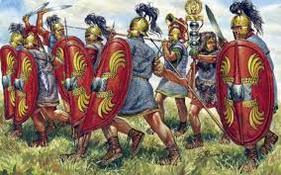
Perhaps it’s because guests aren’t supposed to celebrate until midnight. This means, if your party begins at 8 p.m., you are obliged to mingle, tell, or listen to, bad jokes, gossip, and drink until the bewitching hour of midnight. So for four hours you chat with people you genuinely like. But let’s face it. Four hours held captive with the same people is three hours too long. Then comes the countdown and kisses all around at the stroke of twelve. Sometimes those kisses are welcome. Often, because of alcohol saturated breath, they are not.

This painful exercise led me to consider the origins of New Year’s Eve and reconsider its value.

Aha! As I surmised, New Year’s Eve is fraught with No Good.

The idea of Resolutions reputedly began with the ancient Babylonians some 4,000 years ago in mid-March when crops were planted. Babylonians made promises to the gods to pay off their debts and return any ‘stuff’ they had borrowed. If they kept their word, the pagan gods would favor them in the coming year. If not, they would fall out of favour—a place no one wanted to be with those deities.
So began the Resolutions and the practise took root.
Meanwhile, ever wonder about the origin of Auld Lang Syne? The Scottish poet, Robert Burns, wrote this New Year’s favourite. The 1788 piece literally translates to “old long since” and means “days gone by”.
Which brings us to a couple of other tidbits to ponder as the New Year approaches….
-The world population is expected to reach nearly 7.6 billion at the start of 2018, the German Foundation for World Population (DSW) recently declared; over the past year, the number of people in the world has increased by 83 million - or approximately the population of Germany.
-Stephen Hawking, Oxford professor and physicist, known for his groundbreaking achievements in science, is also recognized for making predictions about the future of humanity and Earth. He claims 100 years is how long we humans have left on Earth (BBC ). This is a stark shift backward from the 1,000 years time limit that Hawking had predicted in 2016. According to Hawking in his BBC science series, Tomorrow’s World, climate change, overdue asteroid strikes, epidemics and population growth are to blame for the new century-long doomsday clock.
Thus it is with trepidation, mixed with hope, we raise a glass and toast you and yours with sincere best wishes for a healthy, peaceful, and thoughtful 2018.
*U.S. News and World Report December 23, 1996
 RSS Feed
RSS Feed